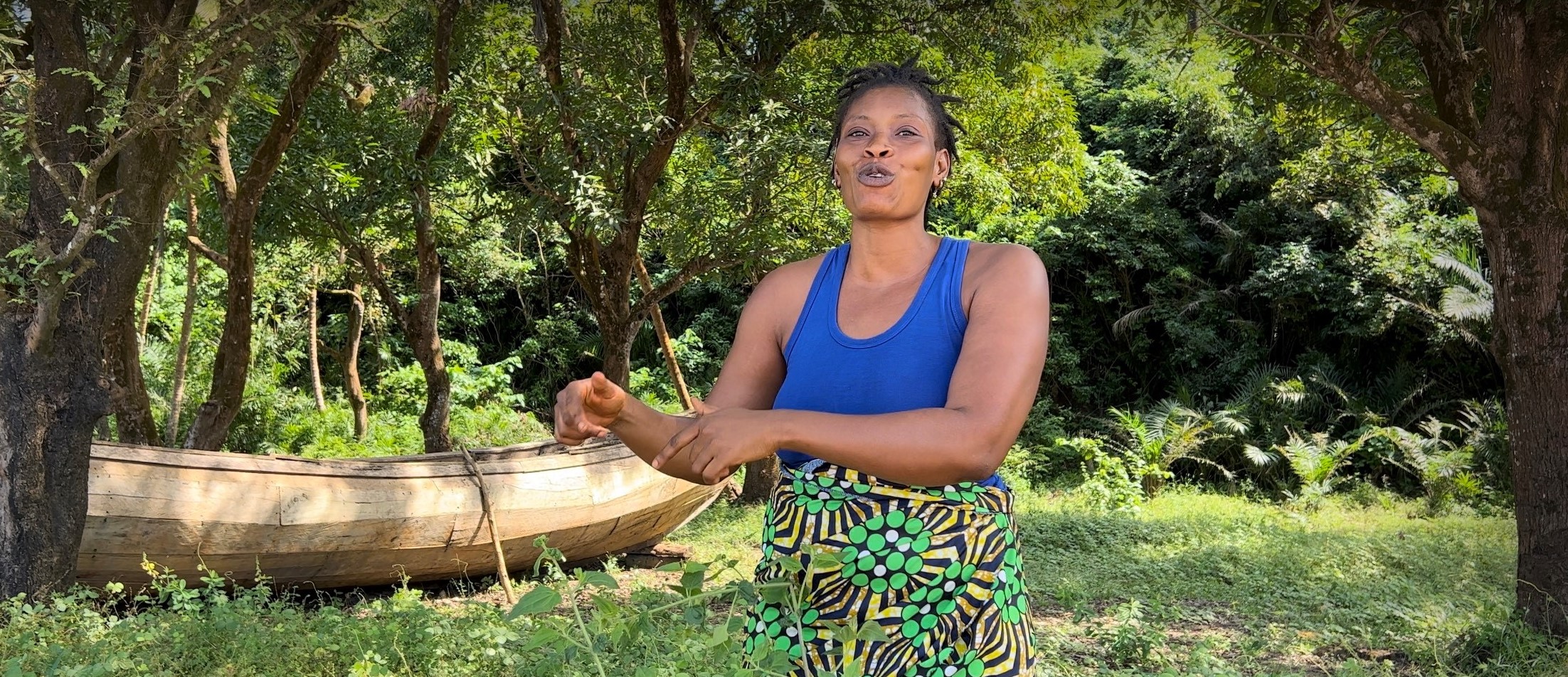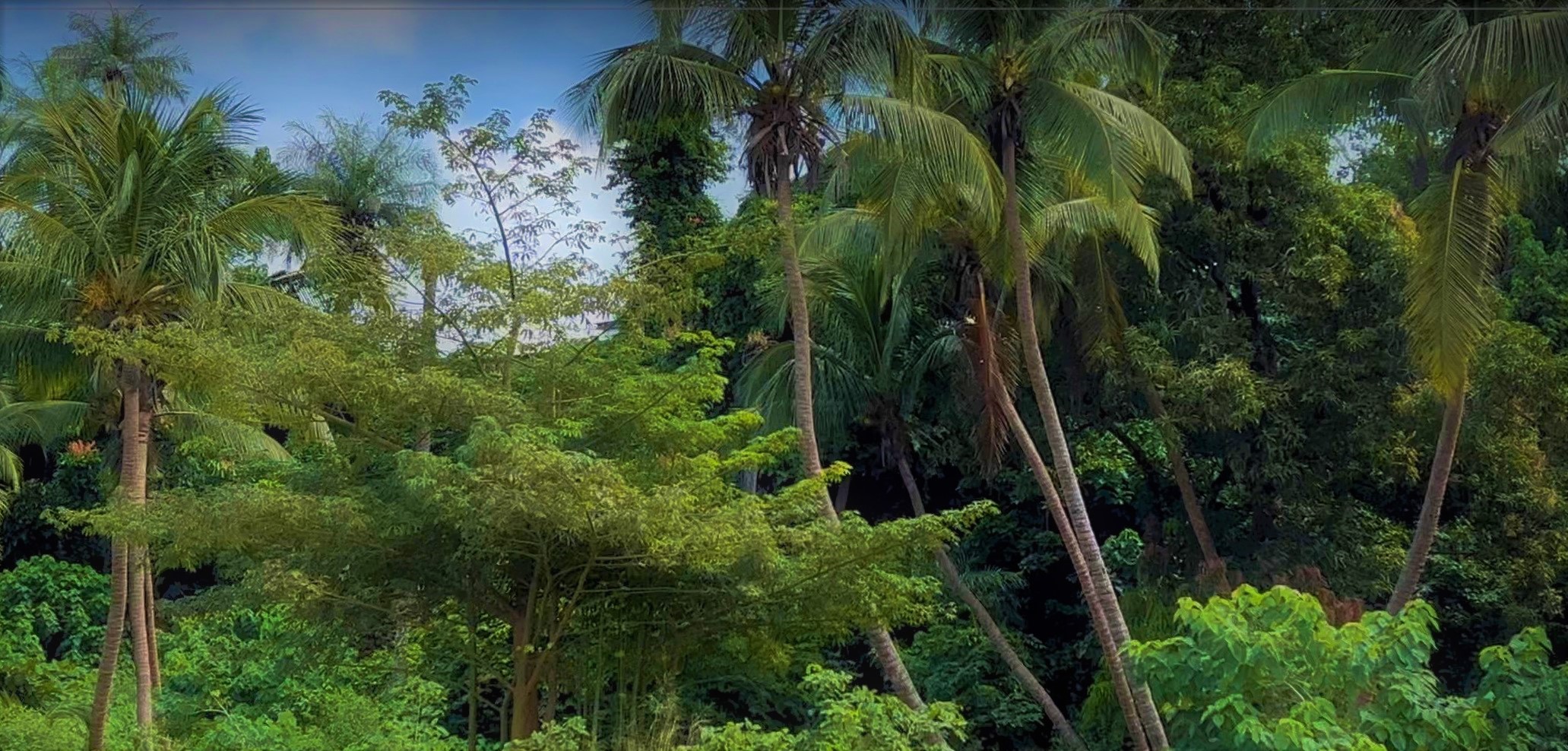Harnessing alternative livelihood skills in climate-prone Konakridee through UNDP’s coastal risk project
December 10, 2022

Photo showing Maseray Sankoh, a fish monger, and member of the Konakridee VSLA group
Located along the coastal line of Port Loko District, 10 km kilometers away from Sierra Leone’s only international airport and 30 km away from Freetown city, Konakridee is one of the coastal communities closer to business opportunities at the airport and the capital.
However, over 3,000 inhabitants are predominantly traders and fishmongers. Over the years, incessant human activities such as deforestation, sand mining, and stone hauling activities have posed increased risks from climate change.
Residents have resorted to making ‘quick’ money from these activities instead of maximizing the full potential of the fish business, and heavy precipitations in the past have led to the destruction of lives and properties.
Through the coastal risk project funded by the Global Environment Facility (GEF), residents are now taking steps to revert their losses by adopting best practices and exploring alternatives livelihoods opportunities.
UNDP’s training on Village Saving and Loan Associations (VSLs) brought together an initial number of thirty (30) members comprising five (5) men, and twenty-five (25) women in Konakridee who, a few months later were able to raise a total of $2000 from their weekly contributions.

Photo showing conserved forest area as a result of the UNDP/GEF-funded coastal risk project
This group now has access to a revolving fund from which other members are now lending with an interest rate of not more than 10%. This has brought financial access to the doorsteps of businesswomen and youth in Konakridee, most of whom do not have collateral to secure loans from formal financial institutions.
Today, several VSLA groups have been established in Konakridee, and beyond financial access, which is boosting their businesses, they now use these groups to respond to other social needs among themselves which is also fostering unity and social cohesion.
Trained in various skills such as gara tie-dyeing, fish value processing, waste management, recycling, improved cooking stoves, etc, these groups are using their new skills to build forward their local economic activities while adapting to climate-induced risks in coastal communities.
Maseray Sankoh, a fish monger, and member of the Konakridee VSLA group. F
or her, the UNDP/GEF-funded project has brought hope for more sustainable economic activities. She believes that the reward for the ‘quick’ money derived from the sand mining business which she used to do is hard labor and poor quality of life. Before these training and empowerment programs, every household in Konahridee was involved in sand and stone mining."Thanks to these UNDP capacity building training, many households have stopped sand mining and no longer cut down trees, rather, we all are now protecting the environment," Maseray concluded.
Like Maseray, many other women and youth targeted by the UNDP/GEF project are now positive that they now have the capacity to be self-reliant and more productive with less labor-intensive businesses, unlike stone hauling or deforestation.
Like in other coastal communities targeted under the coastal risk project, Konakridee is also benefiting from the construction of solar-powered cold rooms, an ice-making machine, raised platforms for fish processing, and fishing boats and equipment for women’s groups.
“Before now our livelihood only depended on sand mining and stone hauling, but now, we have gained lots of skills and knowledge,” said Isatu Jalloh, Chairlady for Women in Fisheries.
Thanks to UNDP’s partnership with the Government of Sierra Leone through various line ministries, departments and agencies such as Fisheries, the National Tourist Board, the Environmental Protection Agency (EPA), and the Institute of Marine Biology and Oceanography (IMBO).
“Before now our livelihood only depended on sand mining and stone hauling, but now, we have gained lots of skills and knowledge.”Isatu Jalloh, Chairlady for Women in Fisheries in Conakridee

 Locations
Locations

